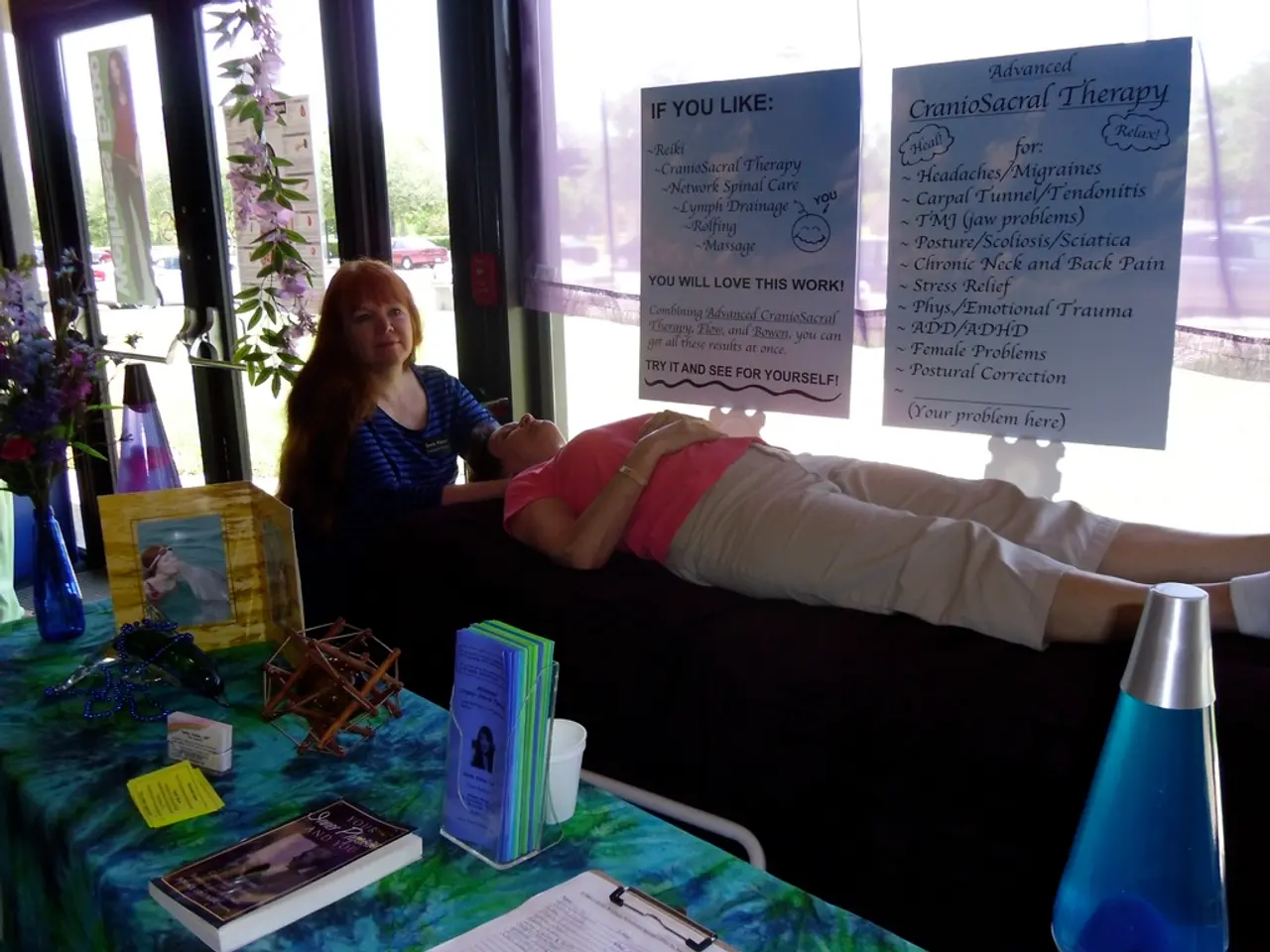Anticholinergic medication eases symptoms: novel drug effectively eliminates PTSD-related nightmares and flashbacks.
In a groundbreaking development, a team of Japanese researchers from the Sogo PTSD Institute, Medical Corporation Sogokai, Hiroshima-city, Japan, have made a significant breakthrough in the treatment of Post-Traumatic Stress Disorder (PTSD). The lead researcher, Dr. Masanobu Sogo, affiliated with Sogo Clinic, Hiroshima City, Japan, has been focusing his primary research interests on PTSD and its treatment.
The researchers identified a drug called trihexyphenidyl, which has shown promising results in reducing the flashbacks and nightmares experienced by patients with PTSD. This centrally acting anticholinergic drug, which has been available for therapeutic use for around 66 years, acts by blocking the activity of a neurotransmitter, acetylcholine, in the Central Nervous System (CNS).
In a study involving 34 patients with PTSD, Dr. Sogo and his team administered trihexyphenidyl and found that it had efficacy and a rapid onset (1-2 days) in the treatment of PTSD-related nightmares and flashbacks. This is the first pharmacological report describing the novel use of trihexyphenidyl for PTSD-related nightmares, which don't respond to conventional psychiatric treatment.
The original paper titled "Centrally acting anticholinergic drug trihexyphenidyl is highly effective in reducing nightmares associated with post-traumatic stress disorder" is published in the renowned journal Brain and Behavior. The DOI for the paper is *https://doi.org/10.1002/brb3.2147*.
The researchers hypothesized that PTSD is generated through an acetylcholine-memory-related circuit centered on the Meynert basal ganglia. Further studies are needed to prove the mechanism of PTSD, but repurposing trihexyphenidyl to treat PTSD would be a promising turn of events, since the drug is inexpensive, and has no adverse effects.
This discovery could potentially revolutionize the way PTSD is treated, offering hope to millions of patients worldwide who struggle with this debilitating condition. More research is needed to fully understand the implications of this breakthrough, but for now, it is a significant step forward in the fight against PTSD.
Read also:
- Method for Eradicating Algae and Diatoms in a Reef Aquarium - Copepods as a Solution
- Researchers delve into unexplored territories of cardiovascular wellness with the Apple Watch
- Enhancing Vaginal Health through Probiotics: Top Strains for Maintaining pH Levels
- Uncovered in a Danish cellar, a 130-year-old butter additive harbors bacteria dating back to the 1890s.




